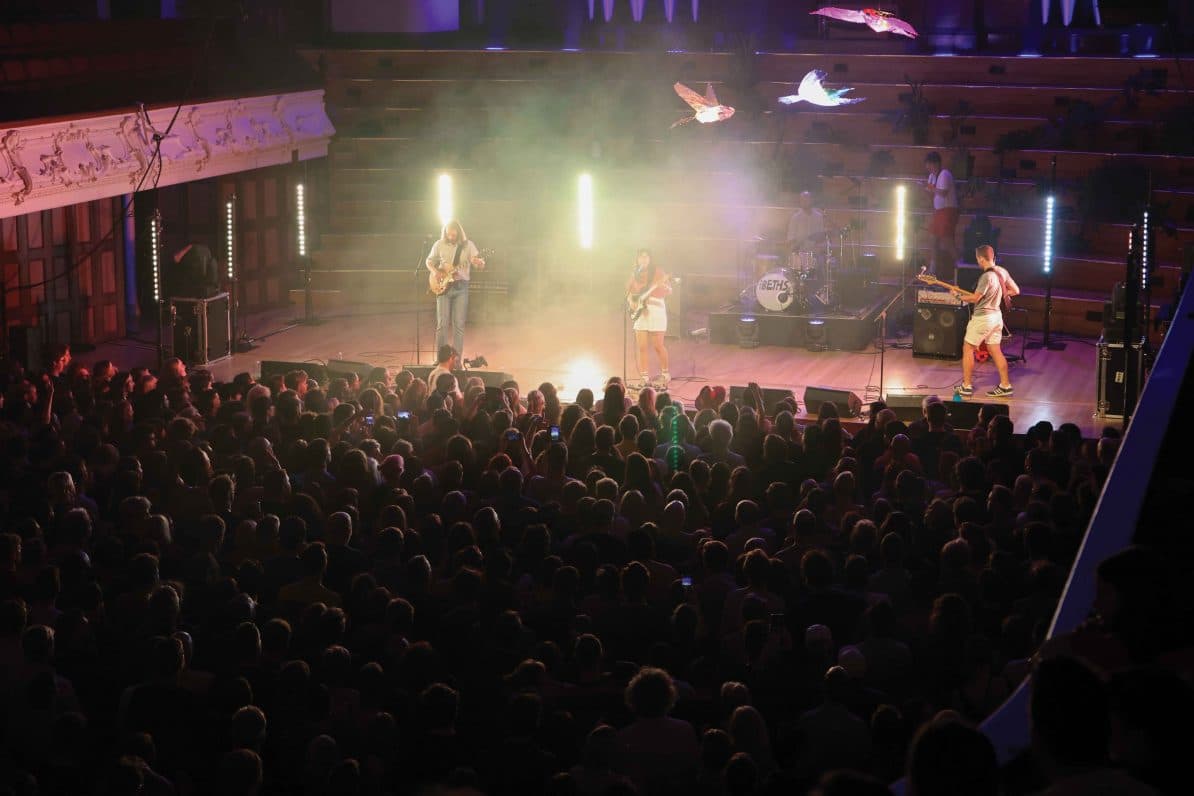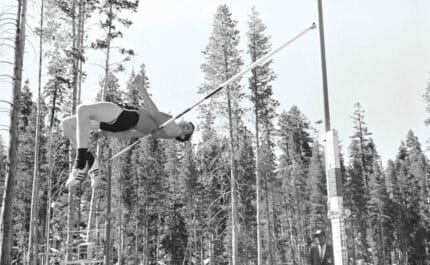Culture in lockdown: 5. Elizabeth Stokes
On 12th October 2020 the UK government announced a £257 million fund for arts venues and organisations temporarily silenced by the Covid-19 pandemic. In issue 41 of Delayed Gratification we spoke with artists and performers around the world to hear how they tried to keep the show on the road during unprecedented times. Here's the final profile in our five-part series

The Beths perform at Auckland Town Hall, New Zealand, 6th November 2020. Photo: Dave Simpson / WireImage
12th Oct 2020 (Taken from: #41)
This is the final part of a five-part series. See also our profiles of comedian Dom Joly, theatre director Matthew Xia, classical musician Yana Tsanova and Elvis impersonator Brendan Paul
Elizabeth Stokes, musician
Auckland, New Zealand
Elizabeth Stokes has vivid memories of The Beths’ 6th November 2020 concert at Auckland Town Hall. “We finished the last chord of the last song. I put my guitar down, took a big breath and then just burst into tears,” says the band’s lead singer and songwriter.
The emotional finale came from the kind of pride a musician feels when their biggest ever hometown show is a sellout. But the tears also flowed because Stokes had just done something entirely normal yet utterly exceptional. She had played a gig in 2020 in front of a real crowd: fans who could hug, dance and sing along to their favourite songs without a care in the world.
Under the leadership of Jacinda Ardern, New Zealand has been widely praised for its “go hard, go early” approach to fighting the Covid-19 pandemic. On 9th August 2020 the country marked 100 days without community transmission and while its borders remained effectively closed it had been able to end restrictions. But a few days later a cluster of Covid infections were discovered in Auckland, the city went into another lockdown and The Beths’ planned New Zealand tour was postponed at the last minute. On 24th September, Stokes announced on Instagram that the band had received a thumbs-up from the country’s health ministry, meaning the rescheduled tour could go ahead.
Stokes says that the band’s extensive New Zealand jaunt, which took them to towns they’d never played before, would not have happened had there been no pandemic. “Usually you’d do three or four [New Zealand] shows,” Stokes says. “But we felt like we should tour the whole country because we felt so lucky to be able to play at all.”
While the band enjoyed exploring their own backyard, it was not what they had planned for 2020. In July they released their second album, Jump Rope Gazers, to the kind of glowing reviews that would normally be accompanied by a world tour. But their North American summer gigs were postponed, and a spring 2021 European excursion has also now been shelved. In terms of revenue, playing a small bar in Takaka (population of town: 1,390) on New Zealand’s South Island doesn’t compare to playing the O2 Forum Kentish Town (capacity of venue: 2,300) in London, where the band – fingers crossed – will finally appear in March 2022 as part of an extensive European tour.
“The way you make money is from touring,” Stokes says. “It’s the biggest slice of the pie. You have really tiny trickles that come in from Spotify, then bigger trickles from Bandcamp. But most money is made from touring, and I guess we’ve lost a lot of potential income this year from not being able to tour internationally.”
Stokes says that New Zealand musicians are lucky to have plenty of support from various subsidies and funds. “It meant we had money through the first lockdown, so as a band we could stay afloat. We had a lot of help, and I know not all musicians have,” she says. She says it’s been “heartbreaking” to hear about musician friends in other countries who’ve found the past year such a struggle.
Gigging in New Zealand remains touch and go – a single positive Covid case is likely to trigger instant cancellations and postponements. Days before our conversation Auckland’s Sounds Like Summer music festival, which the band was due to headline, was nixed after a 56-year-old woman tested positive and the city went into another lockdown. Two further local lockdowns were enforced in February 2021, leading to the cancellation of several more events. But, for a few weeks in October and November, New Zealand remained gloriously Covid free, and Stokes and her bandmates were amongst a tiny number of musicians in the world who could do what they love to do.
“Nobody at the Auckland concert was taking it for granted,” says Stokes. “We were looking around at all the people there, and everybody knew how lucky they were.”
Slow Journalism in your inbox, plus infographics, offers and more: sign up for the free DG newsletter. Sign me up
Thanks for signing up.








